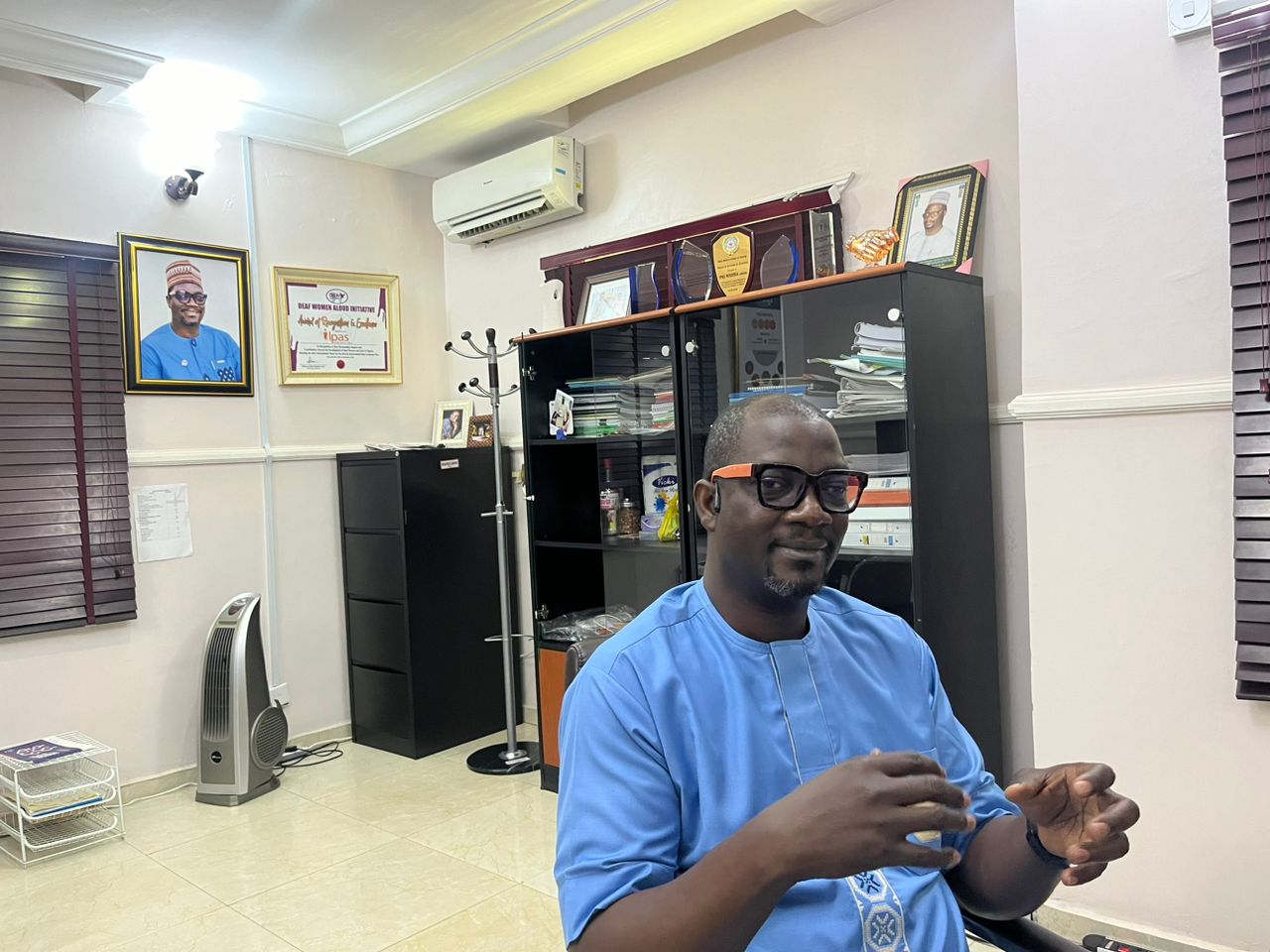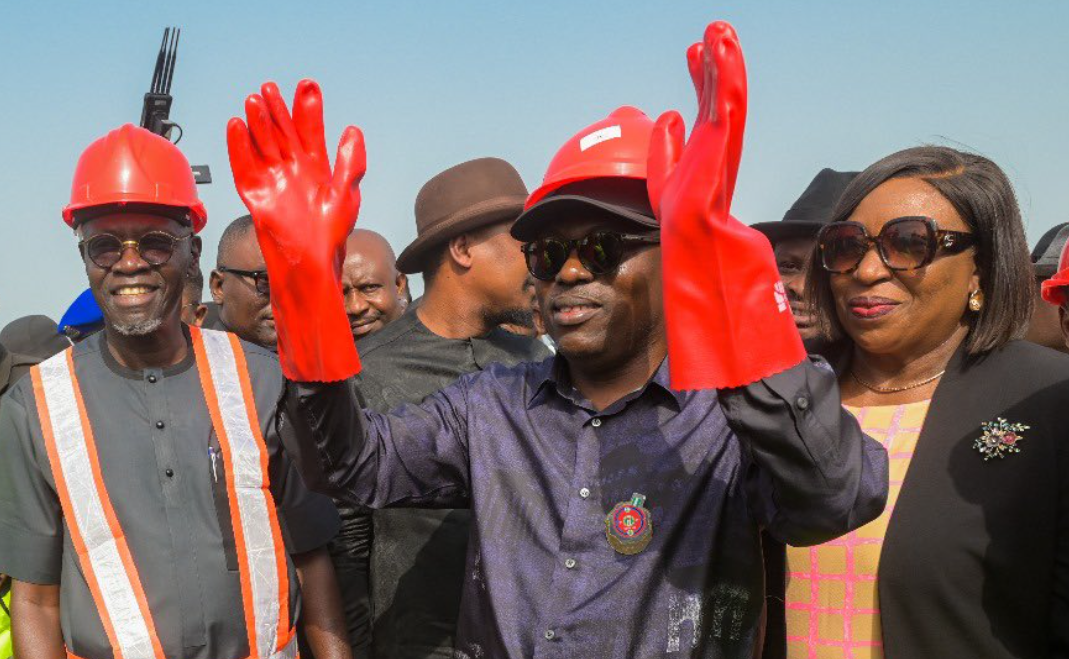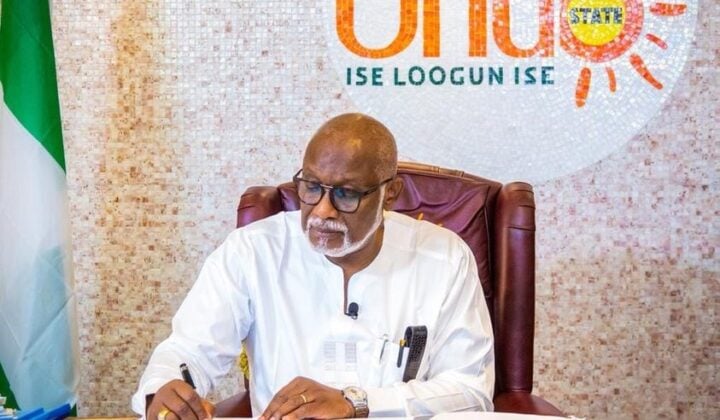In 2017, Nigeria’s maternal mortality hit 917 per 100,000 births. Three years later, the figures surged by nearly 14 percent to 1,047 deaths, ranking among the world’s highest. With each spike, it is a bleak canvas of despair for countless Nigerian women seeking to bring life into the world.
With the conclusion of the 16 days of activism, Lucky Palmer, country director of Ipas Nigeria Health Foundation, spoke with TheCable’s CLAIRE MOM to shed light on the factors that contributed to the country’s high maternal mortality rate and offered practical steps that can be taken to ensure every woman’s right to safe childbirth.
TheCable: What are the primary causes of maternal mortality in Nigeria, and how have they changed over time?
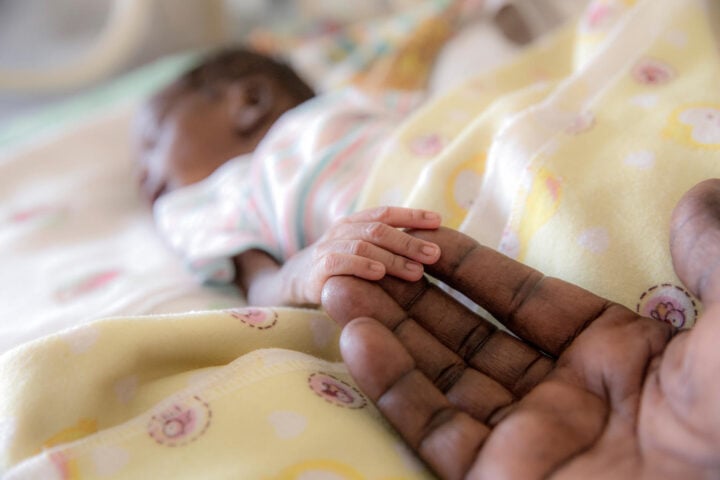
Palmer: The primary causes of maternal mortality in Nigeria over the years have remained constant. One is eclampsia and preeclampsia which are issues around high blood pressure in pregnancy. We have PPH which is postpartum haemorrhage which is bleeding maybe immediately after birth, within the first two weeks or up to six weeks in some instances.
Advertisement
Then, you have sepsis. Sepsis happens most of the time because people go into labour outside the hospital and somehow instruments that are not sterile are used in the process. Most women get infected and they just think everything is normal because the child has been delivered successfully. Before you realise it, a complication arises from an infection. And then again, we have issues of unsafe abortion. I think it has been documented that around 10-20 percent of maternal mortality deaths in Nigeria are offshoots of unsafe abortion, either directly or indirectly.
Personally, I think complications from unsafe abortion could be as high as 40-50 percent because some people have complications from unsafe abortions that they’ve done in the past that come to the fore during their child labour. But most times, people will not link that to the immediate cause because it was not part of the immediate cause; because it is a residual cause, her body will not be able to respond to treatment. All of these are highly preventable. Unfortunately, for the past 20-40 years, they have been constant, and the question is if there is scientific evidence to show that they are preventable. How come we are unable to intervene and stop them?
There will definitely be a need for massive government investment in hospitals to tackle the first three causes of maternal mortality, but the issue of unsafe abortion will be the least cost-input response that the government can do. We only need to amend our legislation and that way, our doctors can be encouraged to perform such services and women can also feel confident that if they go to government hospitals, nobody will harass or stigmatise them and they will get safe services.
Advertisement
TheCable: Speaking of massive government investment, a budget of N1 trillion was allocated to the health sector from the 2024 budget, which has been set at N27.5 trillion. What are your thoughts on this?
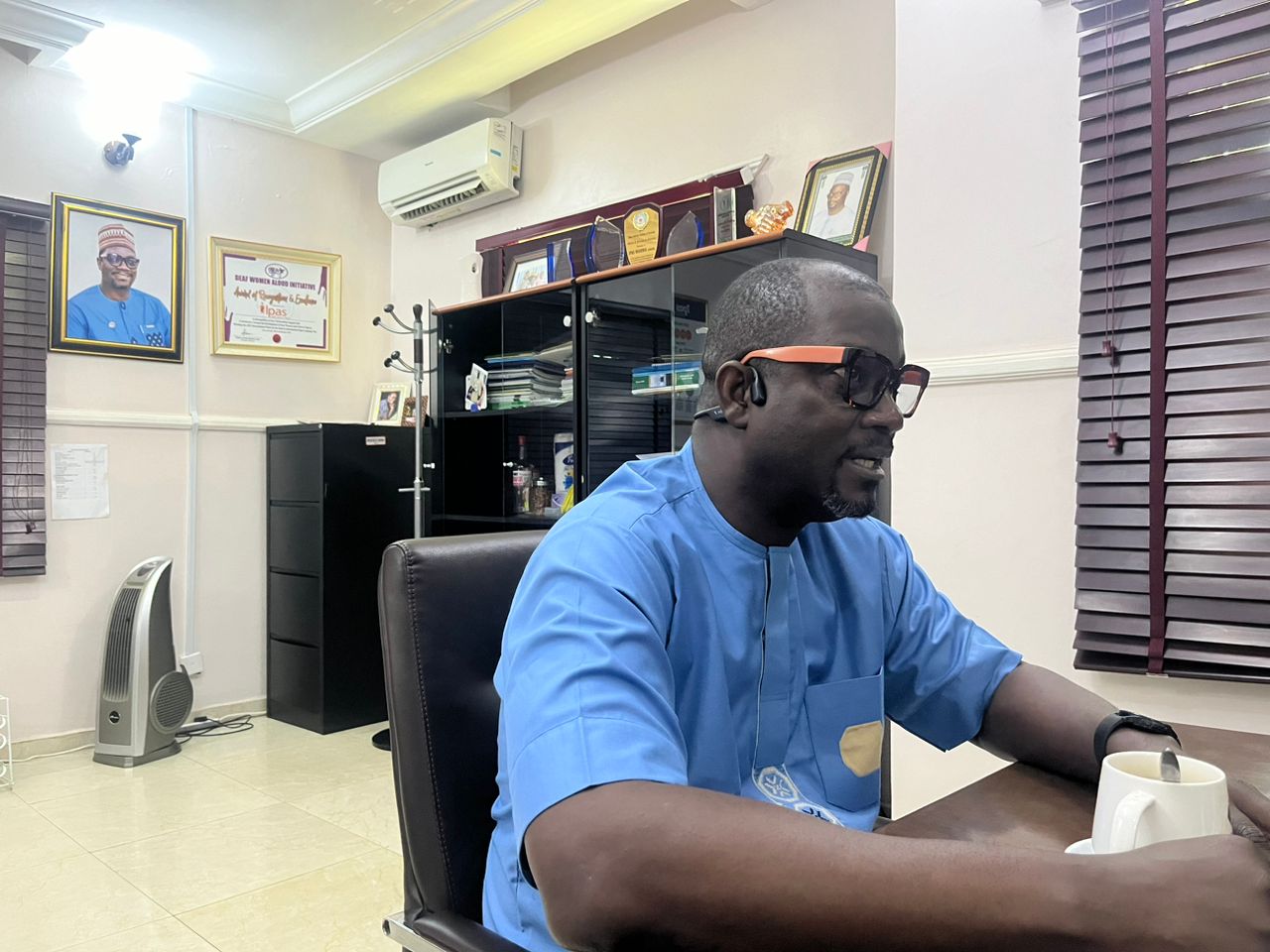
Palmer: N1 trillion is probably only going to scratch the surface. It is definitely not enough, and that is why I talk about massive investments both at the federal and state and maybe also from the private sector. The budget size of N27 trillion is grossly inadequate for the size of our population. So, definitely, the allocation going to each of the ministries will definitely not be enough. We also need to look at the components of the N1 trillion. What are the percentages for personnel, salaries, and pensions?
When you break it down in detail, you realise that what is coming to a hospital cannot scratch the surface. Even if you allocate 10 percent of the current budget for the health ministry, unfortunately, it is still grossly inadequate. We are currently struggling with the issue of human resources for our hospitals; before you talk about the issue of equity in the distribution of health personnel and hospitals. It looks as if there is no hope because there are so many challenges. But one needs to look at the attempt by the current coordinating minister of health and his lovely vision for the country. But no matter how lovely your dreams are, when there is no money, they remain mere wishes.
TheCable: As you said, the private sector has to also play a role in helping the government meet its targets. What specific initiatives has Ipas taken to prevent maternal mortality?
Advertisement
Palmer: For Ipas, we’ve been trying to see how we can prevent unsafe abortion in Nigeria because we understand the impact that unsafe abortion has on the maternal mortality figures that our country faces. So, for us, we have invested massively in training some healthcare workers to be able to provide safe abortion care services, especially for women who have been raped, who are survivors of GBV, and those that become pregnant through incest.
We have also continued to talk about expanding access to medical abortion drugs, and we continue to work to increase the capacity of healthcare providers, especially middle-care providers — nurses and midwives. We’ve done these in partnership with the federal and state ministries of health and primary healthcare centres across the country.
TheCable: But with the current health landscape in the country, do you think you can achieve your goal of ‘zero unsafe abortions’ anytime soon?
Palmer: I think for us at Ipas now, our main issue is: how do we mobilise resources and mobilise the Nigerian population to engage the government in critical conversations around the abortion law? I think it is about 150 years old or so, and it was made by the colonial masters at that time. But the UK has amended that law to reflect the current reality of its people.
Advertisement
So, I think it is about time that we as a people should also look at that law and amend it to fit with our own current realities and the desires of our people. We cannot continue to live on a law that was passed when we did not have a cell phone in our country. I think it is about time that individuals themselves go to court to challenge that law and force the government and the national assembly members to review the law based on the needs of our people.
I think it is also an issue of human rights. It is the right of every woman to determine if she wants to carry the foetus in a rape case. It is not the right of a doctor, a pastor, or an imam to tell her, “I don’t care about your life; you must carry this child.”
Advertisement
TheCable: What roles do you think social mobilisation and community engagement can play in addressing maternal mortality, and do you think they are effectively and adequately used?
Palmer: Let me start with social mobilisation. Nigeria has not fully taken advantage of mass social movements, but the closest we have had will probably be #EndSARS.
Advertisement
Unfortunately, that was hijacked, and it set a bad precedent for government tolerance or intolerance of mass social movements. So, because of that lack of trust that #EndSARS has built, I think it is going to really take a while for those types of mass mobilisations to be freely protected by the Nigerian police.
But for us, we believe in social reorientation processes, and we continue to engage at the grassroots level to reorient our people from religious perspectives and give the community leaders a different perspective so that they also reach other people. We also work with community leaders because we identify that they are critical norm-changers in our communities.
Advertisement
We have actually received some sort of support from quite a number of them, who have now become advocates. For instance, now we have advocates for women who have been raped to have an abortion if they choose. We also have advocates against GBV and we have seen religious leaders and some community leaders even make public reports to the police against a man who continually violates the rights of his wife.
If you look at countries like Kenya, for instance, their abortion services became more liberal after some citizens went to court. We need to challenge this law and get the judiciary to interpret it. One of the clauses in that law that always amuses me is ‘Abortion is only permitted to save the life of the woman’. Then, the question is, when is the life of the woman actually at risk? Is it when she is already gasping for breath or when she is suicidal? I think we really need to ask these questions to both our religious and political leaders who are against expanding access to abortion.
TheCable: Apart from the law, are there any other significant barriers women face to accessing healthcare services?
Palmer: Yes, one is the availability of skilled healthcare providers and hospitals. If you go by the definition of primary healthcare, the number of primary healthcare centres for our population is not enough. Nigeria has one of the highest populations in the world, and some of these primary healthcare centres are not performing at the optimal level because of a lack of equipment or skilled workers.
There is also the issue of health insurance. Most people have to pay out of pocket for healthcare services in Nigeria. So, all of these create a big barrier for a woman to even attempt to visit a hospital. What that causes is that people will only visit the hospital when their situation is near death or when they are confirmed dead.
That explains why we preach about expanding the net for social healthcare insurance so that more people can be brought into that scope and fewer people will need to pay out of pocket for healthcare because people should not have to go through that.
There have been a lot of investments in the health sector, but I think we need to pause and ask ourselves if there have been any positive impacts from those investments. It is about time that stakeholders call for a special conversation on investments in maternal mortality and the corresponding gains so that we can identify the real issue and see how we can re-direct our investment.
For a lot of us, when we hear the numbers saying over 1,000 deaths, it looks like it is just a number. We can’t relate to it. But for those 1,000 families, it is not just a number. It could be their wife, their daughter-in-law, their sister, or their mother. Society loses in a multidimensional way, so we really need to have that national conversation to see how we can redirect investment. It will be a shame if, in the next five years, we come back again and ask ourselves why the numbers have not reduced.
TheCable: What are your hopes for the future of maternal care in Nigeria, and how can the government and other stakeholders play a part in achieving this future?
Palmer: Nigeria, unfortunately, is in a negatively placed position right now in the issue of maternal mortality, and right now, we are dragging down SDG goals 3 and 5. If Nigeria does not meet its target for SDG goals 3 and 5, the world can never achieve that goal. So, there is a need for resources to be mobilised worldwide to make the Nigerian government look at the law because most of the SDG goals are linked to the successes of 3 and 5.
We must change our investment model for maternal mortality programmes in Nigeria if we really want to see a change. If we continue to invest in where we are, I think there won’t be any change in the next 10 years. It is not a curse, but I’m speaking based on the evidence and the signs in front of us.
We need massive investment, for instance, in contraceptives because the family planning investment in Nigeria is largely dependent on donors. So, what that means is that most Nigerians still cannot have access to contraception of their choice. There are underserved communities of women who want family planning methods but cannot get them for one reason or another. That is even compounded by the fact that there is a global shortage of family planning commodities.
Pregnancy is supposed to bring joy, not sorrow. So, we must join hands together, forgetting our religious bias and our so-called moral burden, to work together to stop women from dying just because they are pregnant.
